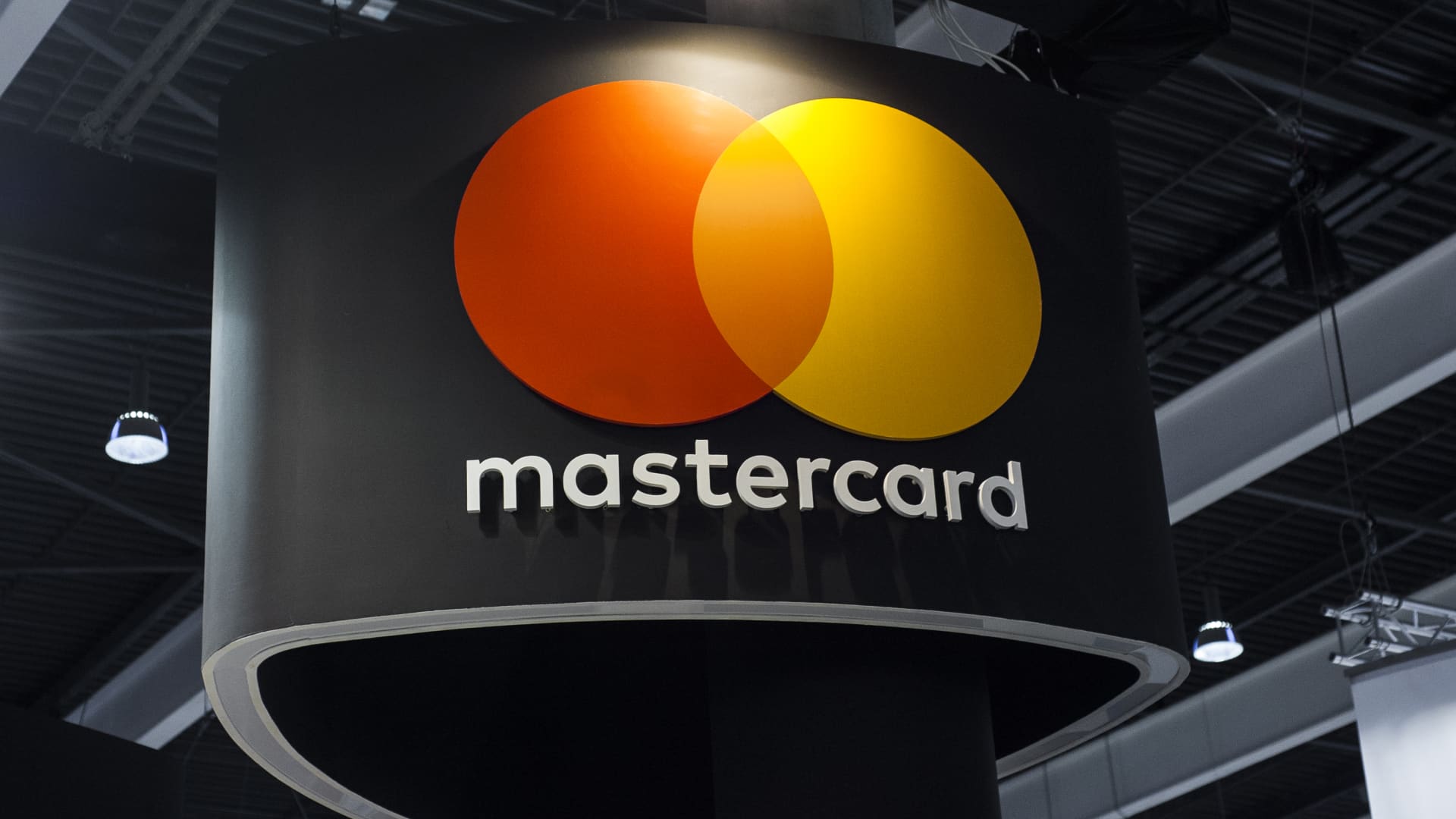BARCELONA, SPAIN – MARCH 01: A view of the MasterCard company logo on their stand during the Mobile World Congress on March 1, 2017 in Barcelona, Spain. (Photo by Joan Cros Garcia/Corbis via Getty Images)
Joan Cros Garcia – Corbis | Corbis News | Getty Images
Mastercard is doubling down on its efforts to detect and prevent fraud that’s routed through cryptocurrency exchanges.
The company told CNBC exclusively that it’s partnered with Feedzai, a regulatory technology platform that aims to combat money laundering and financial scams online using artificial intelligence.
Through the partnership, Feedzai will integrate directly with Mastercard’s CipherTrace Armada platform, which is used to help banks monitor transactions from over 6,000 crypto exchanges for fraud, money laundering and other suspicious activity.
CipherTrace Armada will be embedded directly in Feedzai’s technology, rather than accessed through an API, or application programming interface, with Feedzai “inhaling” the data to enable real-time alerts about suspicious crypto transactions.
“This will increase fraud detection by protecting unwary consumers, but will also detect potential money laundering activity and mule accounts,” Feedzai CEO and co-founder Nuno Sebastio told CNBC. Mule accounts are accounts of users that fraudsters exploit to launder their ill-gotten funds.
An estimated 40% of scam transactions exit directly from a bank account to a crypto exchange today, according to Feedzai data.
The tie-up will also give Mastercard access to Feedzai’s artificial intelligence smarts. Feedzai says its software can identify and block suspicious transactions in a matter of nanoseconds — but also recognize transactions that are legitimate.
Feedzai’s RiskOps platform analyzes transactions worth over $1.7 trillion annually. Co-headquartered in Coimbra, in Portugal, and San Mateo, California, in Silicon Valley, the firm holds close to 100 patents and secures an average of 10 patents per year to safeguard its technology.
“Numerous banks that believe they are preventing illegitimate cryptocurrency transactions are, in fact, only blocking transactions involving the widely recognised and regulated entities within the crypto space and omitting the rest,” Sebastio said.
Crypto entering the mainstream?
The move marks a push from Mastercard into the market for legitimizing crypto as a mainstream financial asset that can be subjected to the same rules and compliance frameworks as traditional assets.
Banks and other large financial institutions have shown increased interest in experimenting with crypto in their products and services. But the next step, deploying commercially available crypto products as part of their core offerings, has proven more elusive.
Banks have been wary of digital assets’ lack of comprehensive regulations and applications in fraud and scams.
Last year, the amount of theft and scams led to a global increase of 79% in crypto-related losses from the previous year, according to data from blockchain analysis firm Chainalysis. Illicit addresses received $14 billion in 2022 year-over-year, almost twice what they received in 2020.
Mastercard’s vast network is used by banking institutions worldwide to process and monetize payments.
The company competes with fellow payments giant Visa, which is also in the business of supporting card payments, among other fintech services.
In the U.K., banks have shown hesitation when it comes to being associated with crypto. Several larger lenders have halted transactions with crypto exchanges on their networks, citing the risk of fraud.
Top banks including JPMorgan, NatWest, and HSBC have restricted or blocked crypto transactions. This led to criticisms from Coinbase CEO Brian Armstrong, who said the development jarred with the U.K.’s ambition to become a global “Web3” hub.
Ajay Bhalla, president of cyber and intelligence solutions for Mastercard, told CNBC that the “interconnectedness of life today and increasing digital penetration of finance has brought risk as well as opportunity.”
“Our latest data shows fraud on transactions where people are buying crypto is 5 times higher than regular fiat transactions,” Bhalla said via email, adding that, with Mastercard’s new tie-up with Feedzai, financial institutions will “be able to tell good transactions from bad.”
The partnership builds on Mastercard’s deal to acquire U.S. blockchain sleutching firm CipherTrace. Mastercard bought CipherTrace in 2021, and the following year launched its first product using the firm’s technology, called CryptoSecure, to analyze and block transactions from fraud-prone crypto exchanges.
Image and article originally from www.cnbc.com. Read the original article here.

